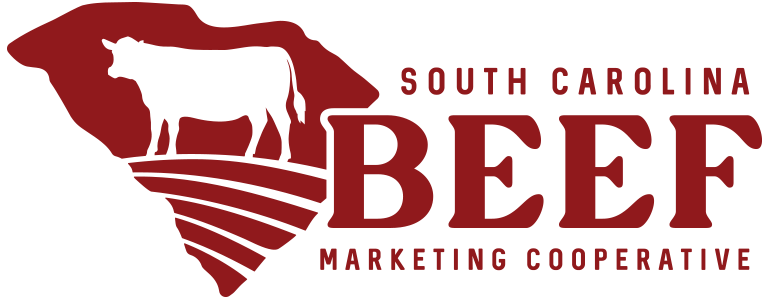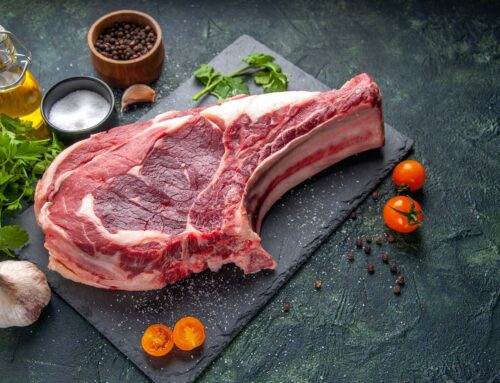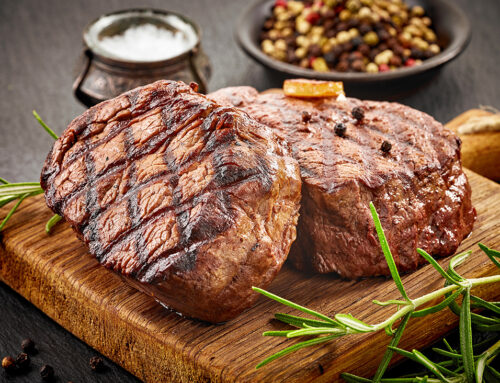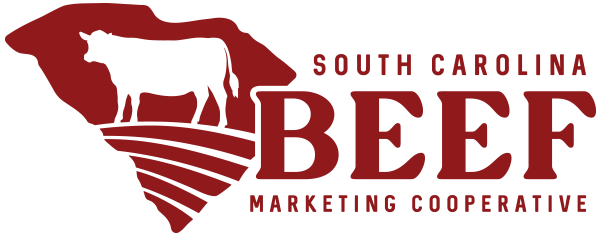South Carolina’s “Cattle Country” offers some of the finest beef anywhere.
When done right, South Carolina beef is part of a balanced American diet.
South Carolina continues to produce some of the best beef money can buy — so, it’s no coincidence that beef is a popular meat for those who call, the “Palmetto State” home.
Beef born, raised, and processed in South Carolina is an excellent source of protein, iron, and zinc as part of an overall healthy diet. However, it’s important to choose the right cuts of beef and to cook it properly.
When choosing beef, look for cuts that are lean with little fat covering the outside edges. Marbling, the fat that runs through the muscle of the meat, makes the meat more tender and flavorful, but it also contains more saturated fat. Beef with no marbling can be touch and have little flavor, but too much marbling and excess fat around the bone and outside layers are not healthy for every day consumption. Lean cuts of beef, such as sirloin steak, flank steak, and tenderloin, are good choices for a healthy diet.
Undercooked beef can contain harmful bacteria, such as E. coli and Salmonella. Knowing who raised your beef and where it was processed cuts down on the likelihood of bacterial contamination. Get to know your farmers, visit where their animals are raised and enjoy a wide variety of South Carolina grown products while you’re traveling.
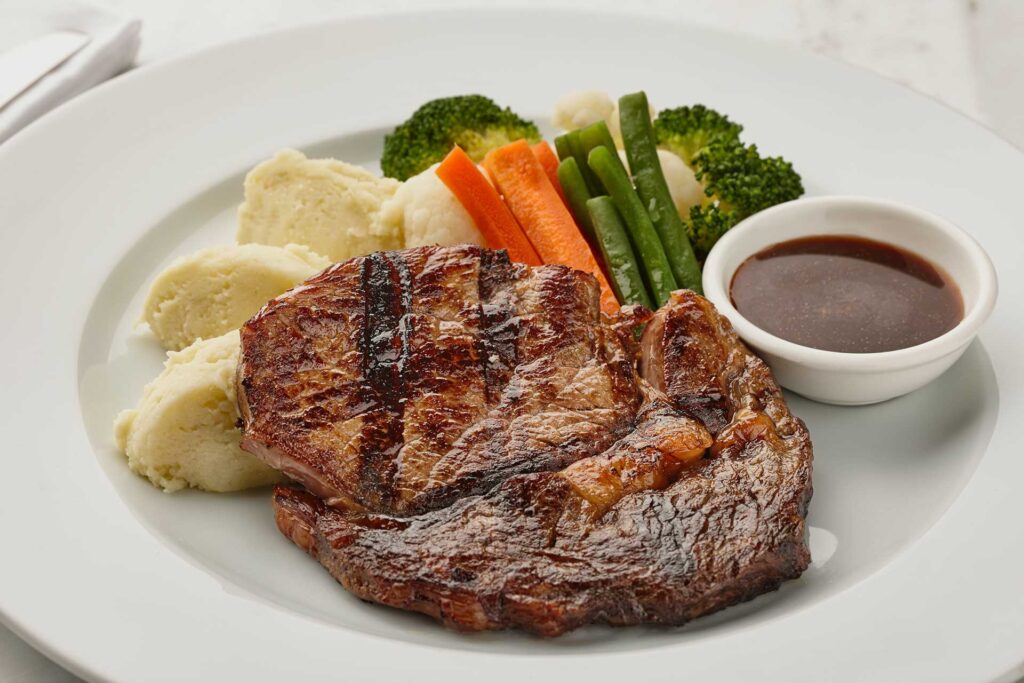
Top tips for choosing the right cuts of beef:
- When it comes to choosing the best cuts of beef for grilling, there are a few things to keep in mind.
- First, you want to choose cuts that are lean and low in fat. This will help to ensure that the meat is grilled to perfection without becoming dry or tough.
- Second, you want to look for cuts that have a good marbling of fat. This will help to keep the meat moist and flavorful.
- Finally, you want to avoid cuts that are too thick or too thin. Thick cuts will take longer to cook, and thin cuts can be dry and tough.
In addition to protein, iron, and zinc, South Carolina beef also contains vitamins B12 and B6, niacin, phosphorus, and selenium, nutrients that are all important for maintaining a healthy body. Protein is essential for building and repairing tissues. Iron is needed for red blood cells to carry oxygen throughout the body. And zinc is important for immune function and wound healing. Vitamin B12 helps to form red blood cells and DNA. Vitamin B6 is needed for the metabolism of carbohydrates, proteins, and fats. Niacin is important for energy production. Phosphorus is needed for bone health. Selenium is an antioxidant that helps to protect cells from damage.
Important: Eating too much saturated fat and cholesterol can increase your risk of heart disease and stroke. But, lean beef can still play an important part in your diet.
The American Heart Association recommends that adults limit their intake of saturated fat to less than 7% of their total calories. For a person who consumes 2,000 calories per day, this means limiting saturated fat intake to less than 16 grams per day.
The American Heart Association also recommends that adults limit their cholesterol intake to less than 300 milligrams per day.

- Cook beef to the desired doneness. Overcooked beef can be tough and dry, while undercooked beef can be unsafe to eat.
- Use a meat thermometer to check the internal temperature of the beef. For medium-rare beef, the internal temperature should be 145 degrees Fahrenheit. For medium beef, the internal temperature should be 160 degrees Fahrenheit. For well-done beef, the internal temperature should be 170 degrees Fahrenheit.
- Avoid charring or overcooking the fat on beef. Charred fat can contain cancer-causing compounds.
- Let beef rest for a few minutes before slicing or serving. This will allow the juices to redistribute, returning to the meat to increase flavor and tenderness.
If you want to support your local community, promote economic development across our state, and eat a healthier diet, you should buy locally-sourced beef. The South Carolina Beef Marketing Cooperative is a great resource for finding local beef. Find a source closest to you: member farms and retailers. You can also find recipes, cooking tips, and news about the benefits of eating local beef.
